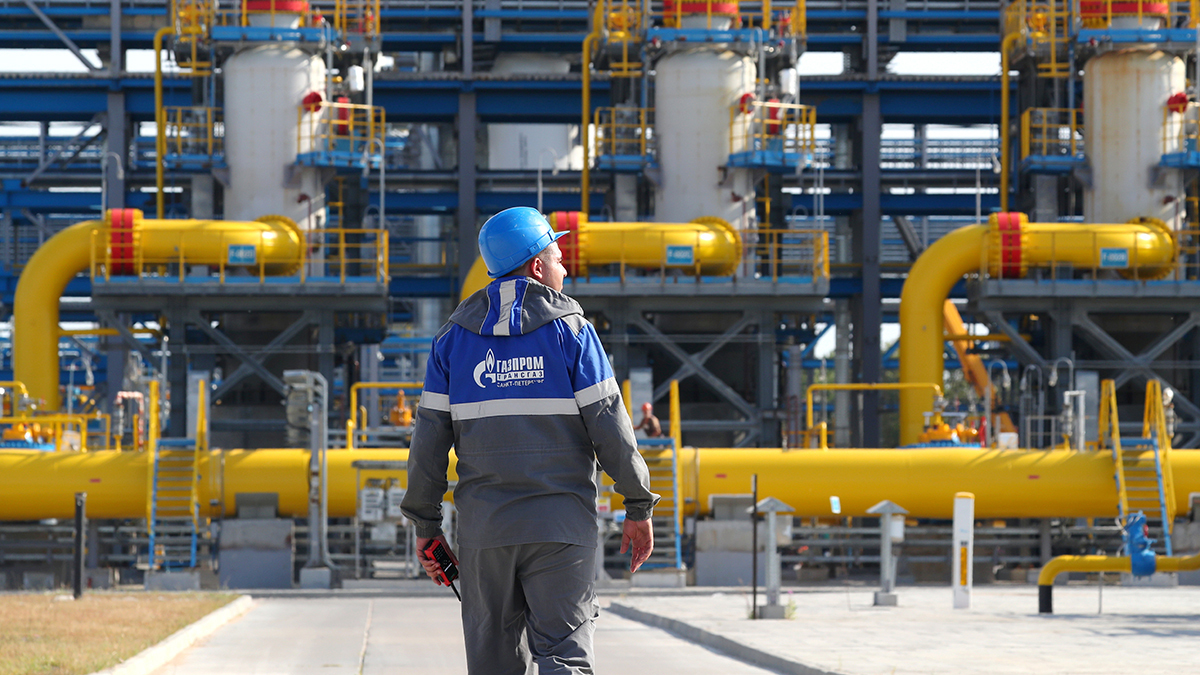Business
Energy transition, oil theft and Nigerian economy
Published
4 years agoon
By
Publisher
By Marcel Okeke
The buzz word in the global energy circles in recent times has been “energy transition”—which is a pathway toward transformation of the world energy sector from fossil-based to zero-carbon by the second half of this twenty-first century. It is focused on the realization of the Sustainable Development Goal Number Seven (SDG-7) that aims to “ensure access to affordable, reliable, sustainable and modern energy for all”. Nigeria, without a doubt, has been part and parcel of the crucial deliberations that have been going on in this‘transition’ journey to ‘clean energy’ and eventual abandonment of ‘fossil fuel’.
However, as this inevitable ‘transition’ journey is commencing, its import is getting more portentous for the nation. The implications are becoming more dreary and daunting for the economy and Nigeria at large.
At the Conference of the Parties (COP26) under the aegis the United Nations Climate Change Conference (UNCCC) held November 2021 in Glasgow, Scotland, to address specific SDGs, Nigeria loomed large. Indeed, while presenting Nigeria’s Energy Transition Plan during the outing, President Muhammadu Buhari reaffirmed his administration’s commitment to clean energy transition, notingthat “funding will continue to play a critical role as far as carbon emission reduction is concerned”.
He added that “the net-zero ambition can lead to economic transformation across all sectors”, stressing that “it is a good ambition, but requires critical infrastructure in place, including renewable energy”.
Incidentally, less than one year after Buhari’sexpression of hope and fears, Nigeria’s energy transition journey appears stalled; or, at best uncertain. A multiplicity of global and domestic issues, many beyond the purview of the country, have conspired to stymie the journey and put the nation in a state of quandary.
Critical among these issues are the dilemma over withdrawal (or non-withdrawal) of fuel subsidy; ripple effects of the spat between Russia and Ukraine that has since turned into a full blown war (driving up oil prices to unprecedented levels); phenomenal crude oil theft, sabotage and vandalism on key oil installations; mounting public debt and worsening insecurity in the land, among others.
Preparatory to the COP26, McKinsey(a global management consulting firm) had supported Nigeria in the development of itsEnergy Transition Plan to define a pathway to ‘Net Zero’carbo, with a goal of lifting 100 million people out of poverty and driving economic growth; bringing modern energy services to the full population and managing the long term job loss in the oil sector that will result from global de–carbonization. Today, these lofty goals are endangered, at best!
In pursuit of these set objectives the global body, International Energy Agency (IEA) had forecast that Nigeria would require a humongous sum of US$445bn of investment in cumulative energy supply through 2040;and eighty percent of this amount would be required by the oil and gas sector.
But in reality, financing oil and gas projects has become more complicated as banks, multilateral lenders and investors are divertingcapital away from fossil fuels (mainstay of Nigeria) to renewable energies. Right at theCOP26, a number of countries and financial institutions pledged to stop funding fossil fuel projects and this, combined with the ‘net zero’carbon targets already adopted globally, present a quagmire as Nigeria tries to balance its need to continue developing its oil reserves in order to generate revenue, whilst at the same time developing gas as the transition fuel.
Prior to COP26 and Petroleum Industry Act (PIA 2021), Nigeria had made attempts at improving its energy efficiency by eliminating gas flaring through gas utilisation projects. The Flare Gas (Prevention of Waste and Pollution) Regulations of 2018 was a regulatory step to reduce the flaring of natural gas and create social and economic benefits from gas flare capture. However, just before the enactment of the PIA in 2021, Nigeriasuspended the implementation of the Gas Flaring Regulation and the auction of licences to process flared associated gas due to legal and funding uncertainties in issuing licences.
In the face of these complexities and somersaults, the Petroleum Industry Act (long expected) came into place (in 2021) rather late, when major operators in the oil and gas industry—the International Oil Companies (IOCs)—with the clout, expertise and funding capacity, had elected to leave Nigeria in droves and invest in other more enabling jurisdictions to actualize SDG-7. Yet energy transition requires huge investment to sustain operability of existing oil and gas infrastructure and much more to drive new installations and technology to move to renewable energies.
But today, Nigeria’s investment climate is no longer attractive—as indicated by the exodus of the IOCs. This is further worsened by massive theft of crude oil, on a scale estimated to be over eighty percent of millions of barrels produced per day. This has translated into dropping oil export by Nigeria to the extent that the country has for a while been unable to meet its Organization of Petroleum Exporting Countries (OPEC)-allocated quotas.
It has also reflected in marginal or no accretion to Nigeria’s external reserves; with much foreign exchange also being committed to servicing the country’s huge public debt put at forty trillion Naira as at end-December 2021.
Lamenting this state of affairs at a function in Abuja, Group Managing Director of Nigerian National Petroleum Company (NNPC) Limited, Mr. Mele Kyari said Nigeria was experiencing the lowest oil output ever due to oil theft and activities of vandals. He said: “as we speak now, there is massive disruption to our operations as a result of activities of vandals and criminals along our pipelines in the Niger Delta area. This has brought down production to levels as low as we have never seen.
Today, we are producing less than 1.5 million barrels per day, simply because some criminals decided that they should have an infectious environment. And that is the biggest form of business disruption that we are facing today.” Sequel to this, the NNPC entered into a collaboration with the armed forces to fight oil theft and vandalism. Specifically, the Nigerian Navy and NNPC have worked out a special operation to “to stop oil thieves from further sabotaging the nation’s oil and gas installations”.
The Navy’s Chief of Policy and Plans, Rear Admiral Suleiman Garba, during the launch the special initiative, blamed the nation’s economic downturn on “attacks on oil and gas facilities by saboteurs.” He said about 40 warships, 200 gunboats, five helicopters and the Navy’s Special Boat Service (Special Forces) and several other units would participate in the three months’ operation.
All these go to show the gravity and enormity of the situation at hand, essentially triggered and bolstered by criminality and policy inconsistency on the part of the Government. A peep into the recent past will show numerous policy and regulatory initiatives that were abandoned in the quest to prioritize gas in the energy landscape of the country.
Today, as the energy transition boat gains speed, Nigeria looks stranded and left in the lurch; it has neither the resources nor the right environment to attract badly needed investment to join in the transition journey. It is indeed bogged down by a motley of factors (internal and external), all with the cumulative capacity to further sink the economy. But we can only hope for light at the end of the tunnel!
Trending

 Health1 week ago
Health1 week agoSinger’s death sparks doctor’s takedown of snakebite myths, exposes public health gaps

 Education6 days ago
Education6 days agoOgun students call for increased funding to improve tertiary institutions

 Football1 week ago
Football1 week agoBarcelona moves to secure Rashford permanently, target Romero

 Comments and Issues5 days ago
Comments and Issues5 days agoIfunanya died in the capital city—what hope is there for rural Nigerians?

 Crime1 week ago
Crime1 week agoGunmen kill Anambra community leader in suspected cult revenge attack

 Comments and Issues6 days ago
Comments and Issues6 days agoThe silent press and the silent siege

 Football6 days ago
Football6 days agoAntony strikes as Real Betis exact revenge on Atletico Madrid

 Energy6 days ago
Energy6 days agoNCDMB introduces stricter guidelines to eliminate unqualified firms from oil contracts

